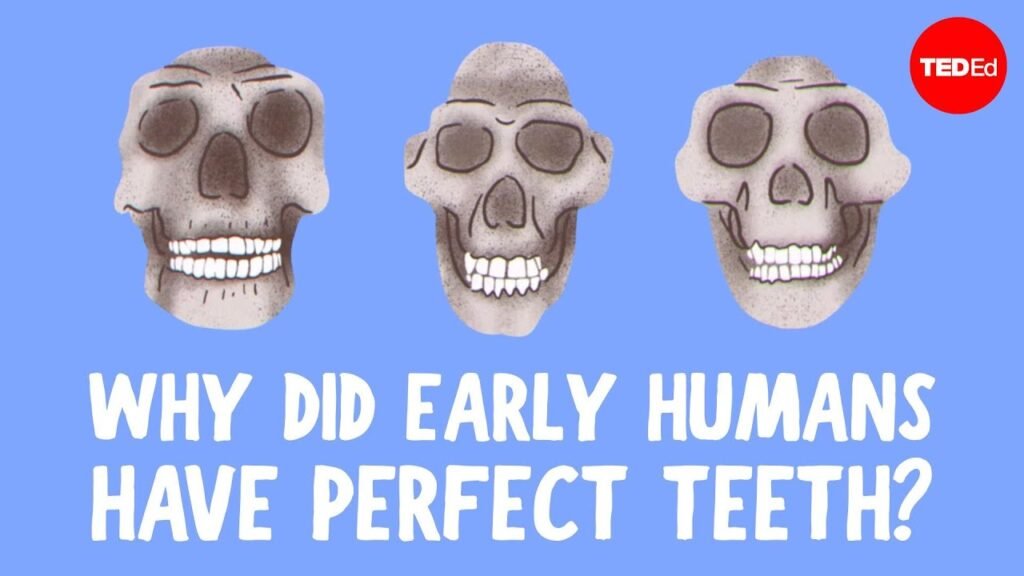Are Some Born Without Wisdom Teeth?

Are some people born without wisdom teeth? It's a common question that has intrigued scientists and researchers for years. While most adults develop wisdom teeth in their late teens or early twenties, there is a small percentage of individuals who never develop these third molars. This intriguing phenomenon has sparked interest in the field of evolutionary biology, as experts seek to understand why some people are born without these teeth. Join us as we delve into the fascinating world of wisdom teeth and explore the mysteries behind their absence in certain individuals.
- Some people are born without wisdom teeth.
- The absence of wisdom teeth is a genetic trait.
- Around 35% of the population is born without wisdom teeth.
- The development of wisdom teeth is influenced by evolutionary changes in the human diet.
Is it uncommon to be born without wisdom teeth?
Interestingly, a significant portion of the population, ranging from 10-40% depending on ancestry, are born without wisdom teeth. This phenomenon is more prevalent in certain ethnic groups, such as Asian Americans and Inuit populations, where up to 40% may be missing at least one wisdom tooth. So, while it may seem rare to not have wisdom teeth, it is actually quite common in certain demographics.
Why do some people not have wisdom teeth?
Research conducted at Princeton University indicates that the absence of wisdom teeth in some individuals can be attributed to evolution. The study reveals that as brain size has increased over time, there has been a corresponding reduction in jaw size. This change in anatomy has led to a lack of space for an additional set of teeth, resulting in the absence of wisdom teeth in certain people.
The findings from the study suggest that the evolution of the human species has played a significant role in the reduction of wisdom teeth. As our brains have evolved to become larger and more complex, the structure of our skulls and jaws has also undergone changes to accommodate this growth. This adaptation has ultimately led to the disappearance of wisdom teeth in some individuals due to a lack of space in the jaw for these additional molars.
In conclusion, the absence of wisdom teeth in certain people can be traced back to the evolutionary process of the human species. The increase in brain size over hundreds and thousands of years has necessitated changes in the anatomy of the skull and jaw, resulting in a lack of space for wisdom teeth to develop. This natural adaptation highlights the intricate relationship between human evolution and the development of our dental structure.
Which race does not have wisdom teeth?
Did you know that some races do not develop wisdom teeth? In fact, individuals of Asian descent and the Inuit are least likely to have wisdom teeth. This interesting fact sheds light on how environment and ethnicity can play a role in the development of these third molars.
The absence of wisdom teeth in certain races is a fascinating phenomenon that highlights the diversity of human anatomy. Research has shown that individuals of Asian descent and the Inuit have a lower likelihood of developing wisdom teeth compared to other ethnic groups. This suggests that genetics and environmental factors may influence the presence or absence of these molars.
Understanding the relationship between race and the development of wisdom teeth can provide valuable insights into the complexities of human evolution. By recognizing that individuals of Asian descent and the Inuit are less likely to have wisdom teeth, we can gain a better appreciation for the diversity and adaptability of the human body in different populations.
The Mystery of Missing Wisdom Teeth
Discover the enigmatic phenomenon behind the disappearance of wisdom teeth, a common occurrence that has puzzled both patients and dentists alike. These third molars, once thought to be a necessary rite of passage into adulthood, are now vanishing from dental X-rays and leaving experts scratching their heads. Could it be evolution at work, or perhaps a shift in human anatomy? Unravel the mystery of missing wisdom teeth and delve into the intriguing world of dental science.
Unraveling the Genetics Behind Wisdom Teeth Absence
Wisdom teeth, also known as third molars, are a common dental issue for many people. However, there is a small percentage of the population who never develop wisdom teeth at all. Researchers have been delving into the genetic factors that contribute to the absence of wisdom teeth, uncovering fascinating insights into the evolution and development of the human dentition. By studying the genetic variations in individuals without wisdom teeth, scientists are gaining a deeper understanding of the biological processes that govern dental development, shedding light on the complex interplay between genetics and dental morphology.
The genetics behind the absence of wisdom teeth is a topic that continues to captivate the scientific community. As researchers unravel the intricate genetic pathways involved in tooth development, they are uncovering valuable information that could potentially lead to advancements in dental care and treatment. By unlocking the mysteries of wisdom teeth absence, scientists are paving the way for personalized dental interventions and possibly even interventions for other dental anomalies. The exploration of genetics in relation to wisdom teeth absence holds promise for improving our understanding of human evolution and development, as well as offering potential insights into broader aspects of genetics and human health.
In the end, the presence or absence of wisdom teeth varies among individuals and can be influenced by genetic factors. While some people are born without wisdom teeth, others may experience their eruption later in life. Regardless of whether or not they develop, it is important for individuals to maintain good oral hygiene and seek professional dental care to address any potential issues related to their wisdom teeth. Understanding the unique nature of wisdom teeth can help individuals make informed decisions about their dental health.